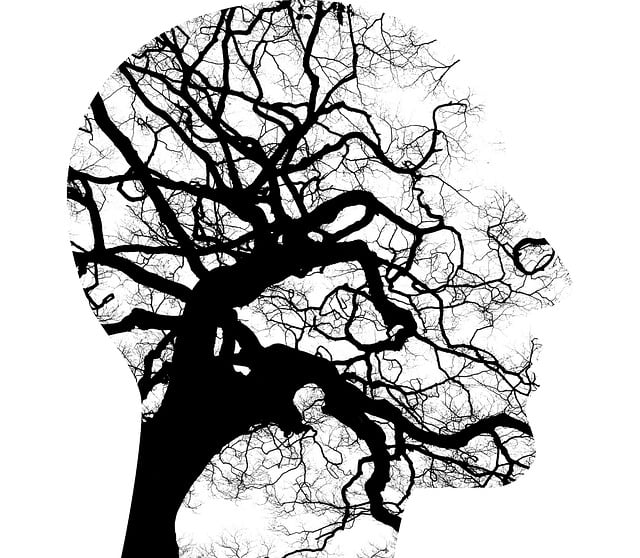Lone Tree Family Counseling Therapy emphasizes early recognition of depression signs, empowering individuals and families through mental health education. They advocate for timely interventions based on symptoms like persistent sadness, sleep/appetite changes, and concentration issues to address root causes. Building resilience, through self-care, social connections, and community outreach, is a key strategy for prevention and management. Maintaining healthy lifestyles, including balanced nutrition and regular exercise, supports well-being. Their specialized services, such as cognitive-behavioral therapy (CBT), offer safe spaces for growth, addressing underlying issues and improving communication for long-term mental wellness.
Depression is a prevalent condition affecting individuals across all demographics. This article explores comprehensive strategies for depression prevention, empowering readers with tools to maintain mental well-being. We delve into understanding depression by recognizing its signs and symptoms, building resilience through evidence-based practices, and adopting healthy lifestyle choices. Social connections and professional help from Lone Tree Family Counseling Therapy play pivotal roles in managing and preventing depressive episodes.
- Understanding Depression: Recognizing Signs and Symptoms
- Building Resilience: Strategies for Mental Well-being
- Healthy Lifestyle Choices: Nutrition, Exercise, and Sleep
- Social Connection and Support: The Power of Relationships
- Professional Help: Seeking Counseling and Therapy
Understanding Depression: Recognizing Signs and Symptoms

Depression is a complex mental health condition that can significantly impact an individual’s daily life and overall well-being. Recognizing the signs and symptoms early on is crucial in preventing and managing it effectively. Many people struggling with depression may exhibit changes in their behavior, emotions, and thoughts, often resulting in feelings of sadness, hopelessness, or a lack of interest in activities they once enjoyed. At Lone Tree Family Counseling Therapy, we emphasize the importance of understanding these cues to foster empathy building strategies that can make a profound difference.
Through mental health education programs designed to promote self-esteem improvement, our counseling services aim to empower individuals and their families. By recognizing symptoms such as persistent sadness, changes in appetite or sleep patterns, lack of energy, feelings of guilt or worthlessness, and difficulty concentrating, we can provide timely interventions. Early detection enables us to design tailored strategies that address the root causes of depression, ensuring a holistic approach to prevention and recovery.
Building Resilience: Strategies for Mental Well-being

Building resilience is a powerful tool in preventing and managing depression. It involves equipping individuals with the ability to adapt and bounce back from life’s challenges, ensuring their mental wellness remains robust. Lone Tree Family Counseling Therapy emphasizes the importance of fostering resilience as a proactive approach to emotional health. This strategy focuses on developing coping mechanisms and strengthening support systems, which are key elements in navigating difficult times.
The path to resilience often includes engaging in various activities that promote self-care and stress management. This might involve practicing mindfulness techniques, such as meditation or deep breathing exercises, regularly scheduled physical activity, maintaining a balanced diet, and ensuring adequate sleep. Additionally, connecting with others through social interactions and building a robust support network can significantly contribute to mental wellness. The Mental Wellness Podcast Series Production often highlights the benefits of these practices, offering valuable insights for those seeking to enhance their resilience. Community Outreach Program Implementation initiatives also play a vital role in fostering collective resilience, providing resources and support to individuals facing mental health challenges.
Healthy Lifestyle Choices: Nutrition, Exercise, and Sleep

Maintaining a healthy lifestyle is a cornerstone in preventing depression and promoting overall well-being. Nutritional choices play a significant role in mental health; incorporating balanced meals rich in essential vitamins, minerals, and omega-3 fatty acids can boost mood and energy levels. Lone Tree Family Counseling Therapy advocates for a mindful approach to eating, emphasizing the connection between diet and brain function.
Regular physical activity is another powerful tool. Exercise releases endorphins, often referred to as “feel-good” hormones, which can reduce stress and anxiety, commonly associated with depression. Additionally, consistent sleep patterns are vital; targeting 7-9 hours of uninterrupted rest each night supports not just physical health but also strengthens the mind’s resilience against depressive episodes, reinforcing Mind Over Matter principles for burnout prevention and anxiety relief.
Social Connection and Support: The Power of Relationships

Social connections play a pivotal role in mental health, serving as a powerful tool against depression. Building and maintaining strong relationships can provide a sense of belonging and purpose, two key factors that contribute to overall well-being. Whether it’s spending time with family, engaging in community activities, or joining support groups, these social interactions offer opportunities for emotional expression, shared experiences, and a sense of safety. Lone Tree Family Counseling Therapy recognizes the importance of social connection as a foundational aspect of their approach to mental health treatment.
At the heart of this strategy lies the development of coping skills that foster meaningful relationships. Learning effective communication techniques, conflict resolution strategies, and empathy-building exercises can strengthen bonds and create healthier dynamics. Additionally, boosting confidence through self-care practices, goal setting, and celebrating achievements can enhance social interactions, making individuals feel more empowered to reach out and connect with others. Integrating stress management techniques into daily routines further reinforces the resilience needed to navigate life’s challenges alongside a supportive network of friends and family.
Professional Help: Seeking Counseling and Therapy

Depression can be a complex and challenging condition to manage, but seeking professional help is a vital step towards recovery. Lone Tree Family Counseling Therapy offers specialized services that cater to individuals seeking support for their mental health. Trained therapists provide a safe and non-judgmental space for clients to explore their emotions, thoughts, and behaviors. Through various therapeutic approaches, such as cognitive-behavioral therapy (CBT), clients can learn coping strategies to manage symptoms effectively.
One of the key benefits of counseling and therapy is the opportunity for self-reflection and personal growth. By addressing underlying issues, improving communication skills, and enhancing self-esteem, individuals can develop resilience and a deeper understanding of themselves. Additionally, these services often include stress management workshops and mental wellness coaching programs designed to empower clients with practical tools for long-term well-being.
Depression is a serious yet treatable condition. By understanding its signs, adopting healthy lifestyle choices, fostering strong social connections, and seeking professional help when needed – whether through counseling at Lone Tree Family Counseling Therapy or other therapeutic avenues – individuals can significantly reduce their risk and manage symptoms effectively. Remember, prioritizing mental well-being is key to leading a fulfilling life.














